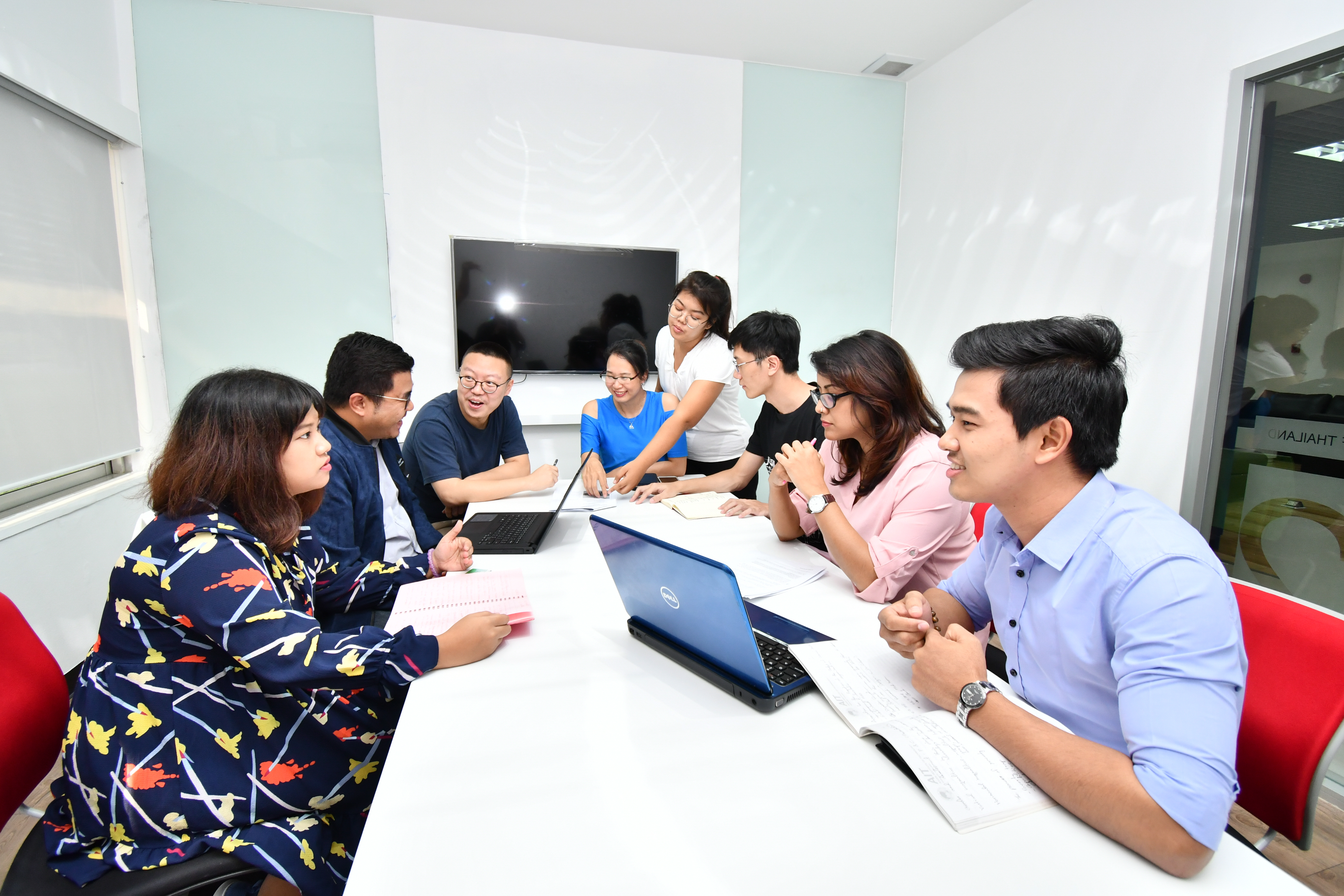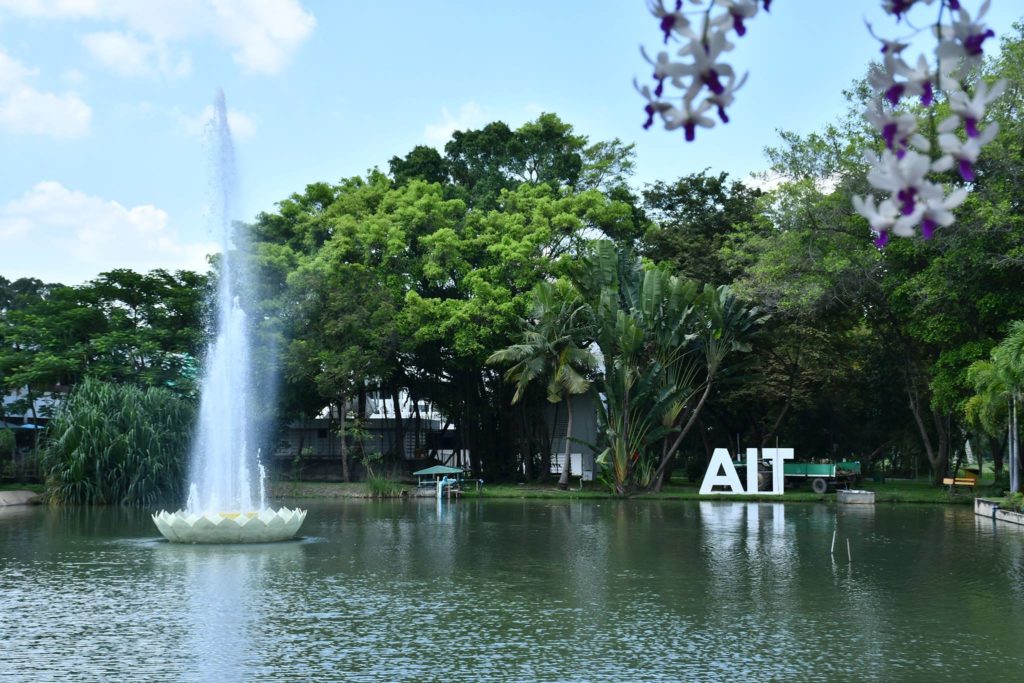Summer Course

Summer Course
Department of Development and Sustainability is offering a series of Summer Courses in May – June. These courses are intensive application-oriented courses designed for participants who would like to brush up their knowledge on specific development issues in the region. Courses consist of lectures, discussions and group exercises. All courses are small classes taught in English with participants from various countries – a truly international experience

Courses Available
Study at AIT
ED75.9017 Forced Migration and Human Trafficking in the Greater Mekong Sub-region
Instructor Dr.Philippe Doneys (Gender and Development Studies)
Credit 1 credit
Objectives:
The course aims to understand various forms of forced migration and trafficking in persons in the Greater Mekong Sub-Region (GMS), including refugee flows, disaster related migration, labor trafficking, sex slavery and other form of involuntary servitude. It will examine both disaster-related and political forms of forced migration (including statelessness), as well as human trafficking, including why women tend to be particularly vulnerable to involuntary servitude and sex trafficking, and why men are often overlooked as trafficked persons for labor purposes. We will end with a discussion of how policies affect, prevent or cause forced migration and with a presentation of key challenges when conducting research on forced migration and human trafficking.
ED75.9023 Gender Issues in Global Economy
Instructor Prof.Kyoko Kusakabe (Gender and Development Studies)
Credit 1 credit
Objectives:
Globalization and regional economic integration are features that characterize the economy nowadays. The course discusses gender issues under such economic globalization. Patterns in economic development differs under different states and locations, and gender issues and relations are shaped by and also shape the economy. The course provides key concepts in understanding gender issues in economic globalization.
ED76.13 Natural Resources Degradation and Conservation
Instructor Prof.Rajendra P. Shrestha (National Resources Management)
Credit 3 credits
Objectives:
Degradation of natural resources has undermined the supporting capacity of the ecosystem with eventual consequences on the issues like food security, poverty alleviation, climate change and biodiversity loss. This is especially important in developing countries including those in Asia. The objective of the course is to introduce the major types of natural resources degradation in Asia, techniques and tools to monitor them, and to design appropriate conservation practices.
ED77.9012 Socio-ecological Systems Approach and Adaptive Governance
Instructor Dr.Thi Phuoc Lai Nguyen (Regional and Rural Development Planning)
Credit 1 credit
Objectives:
Nature and society sequentially respond socio-environmental changes as key features of the social, economic, climate and ecological systems evolve. However, it is often difficult to predict such changes because the interaction of a range of elements in the socio-ecological systems results in complex and dynamic behavior of the systems. In addition, societal responses may be governed by cultural and socio-economic constraints. Adaptive governance of complex socio ecological systems in the changing world is emerges important for determining desirable responses, such as ‘resilience’ and ‘sustainability’.
The course aims to introduce an interdisciplinary perspective of adaptive governance in the light of social-ecological and environmental change and transformation. It introduces theoretical understanding and insight of complex social-ecological systems and the concepts of adaptive governance in socio-ecological systems in theory and practices. It will also examine practical case studies on how resilience and adaptive capacity building can be examined from the local perspective to the national and regional perspective. Special emphasis will be given to the evaluation and identification of learning processes and changes.
ED82.9008 Community and Adaptation to Climate Change
Instructor Dr.Mokbul N Ahmad (Regional and Rural Development Planning)
Credit 1 credit
Objectives:
The main objective of the course is to make students understand the key challenges to adaptation to climate change at the community level. It deals with the concepts and types of adaptation, technological challenges, the role of governments, NGOs, civil society and international organizations in promoting adaptation.
ED79.9013 Urban Resilience Assessment
Instructor Dr.Vilas Nitivattananon (Urban Environmental Management)
Credit 2 credits
Objectives:
Rapid urbanization and external risks including climate change creating new risks and challenges in the area of sustainable urban development and management. Urban resilience is a versatile concept, which helps frames the difficult process of tackling the environmental, social, and economic challenges of modern cities in a positive way. However, similar to other broad concepts such as sustainability, resilience is inherently vague. This course is designed to prepare people for careers and leadership roles in resilience assessment in an urban context. It is designed to provide students with the multidisciplinary knowledge and skills required to understand successful approaches, tools and practices for the assessment of urban resilience. The course also covers specific topics to support the integration of resilience into sustainable urban development and management, particularly multiple-scale and multi-sectoral resilience assessment methods and capacity building.
Requirements
You need to submit the following documents to apply

Bachelor Transcript
and
Degree Certificate
Course Fee
Registration Fee 5,000 Baht
Tuition Fee 16,000 Baht/Credit
Upon completion of the course, you will receive at the end of the Course
– A certificate of attendance
– A transcript of record on the course taken with corresponding grade (only for credited participant)
Registration Fee 5,000 Baht
Tuition Fee 10,000 Baht/Credit
At the end of the Course
– A certificate of attendance will be issued noting that the student audited the course
Study with us to improve your professional skill
Important Dates
Application Open : 1 February
Application Close : 15 May
Course Duration : 27 May – 27 June
Location: Asian Institute of Technology (AIT)
How to Apply
1.
Select the course(s) and choose whether for credit or audit then ‘Submit’
2.
Thai Baht Account : Siam Commercial Bank, Thammasat University Hospital Branch
Name of A/C: ASIAN INSTITUTE OF TECHNOLOGY
Current A/C # 468-046301-2
Address: 95 Moo 8, Klong Nueng, Klong Luang, Pathumthani 12120 Thailand
Swift code: SICOTHBK
3.
You will get the offer letter from AIT.
If you have any question, please do not hesitate to contact us
Apply Now
Contact us
Please feel free to contact us